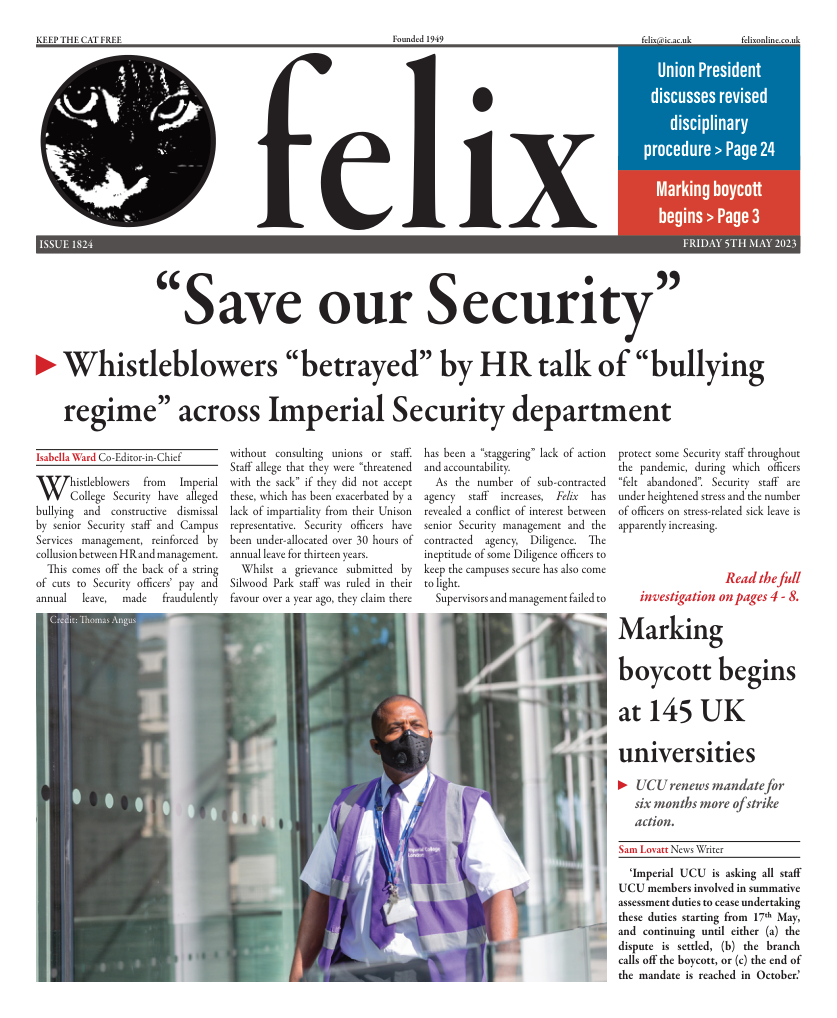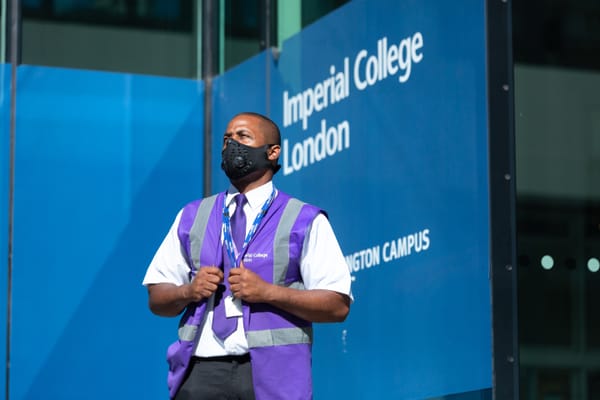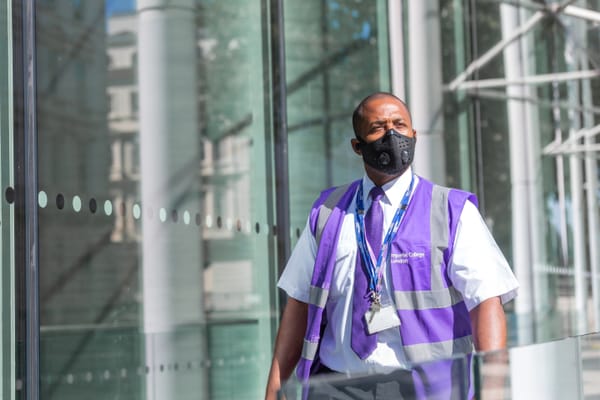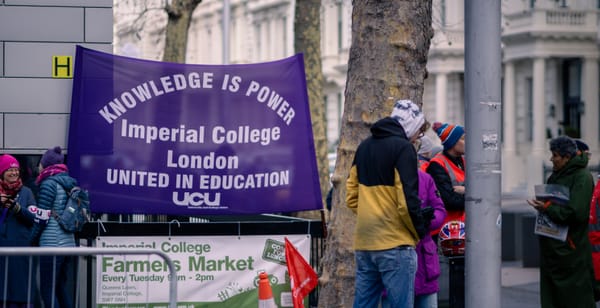Campus safety "compromised" by agency staff, say Security officers
Decline in welfare of Security staff as they feel heightened job threat from agency staff, claiming sub-contracted officers are not up to the job.
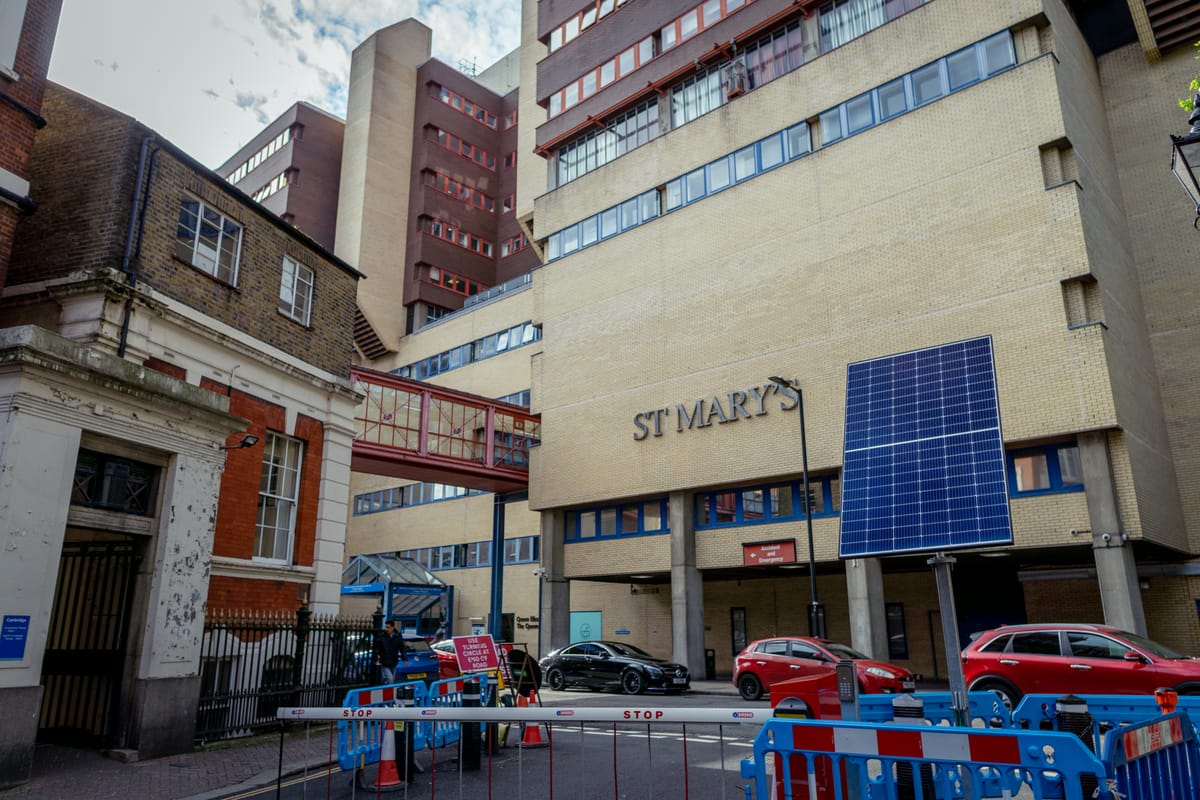
Imperial College Security officers have created a petition to send to the College President and Provost, appealing to the College to reduce its reliance on agency staff. Not only do they feel a job threat by the College's increasing use of security agency Diligence Security Solutions Ltd, but they claim that the sometimes poorly trained sub-contracted officers are compromising staff and student safety.
Who are Diligence?
Security agency Diligence Security Solutions Ltd. has been sub-contracted since 2015. At the time, an affiliate company of Diligence Security, Diligence Technical Solutions Ltd, was partly owned by a senior member of the Security team’s spouse. The two companies have shared two of the same directors: Dr Michael Patrick Bateman and Mr Adam William Frame.
In 2018, Diligence Security filed for insolvency and subsequently agreed to Company Voluntary Arrangements (CVA), allowing them to continue trading as long as they made monthly payments of £3000 to creditors for five years. That same year, Imperial College allegedly signed a three-year contract with Diligence Security.
The concerned spouse resigned from Diligence Technical that July and was replaced by Frame. However, the company was struck off a year later due to failing to file accounts. Frame later became Director of Diligence Security in August 2020.
The supervisor for Diligence Security’s CVA notes that, whilst displaying resilience during the pandemic, Diligence Security struggled to retain existing work and win or renew contracts due to being under CVA. Indeed, in May 2020 the company paid a total dividend of £28,321.90 to creditors. Yet little over a year later, in July 2021, they paid £134,021.32: nearly five times as much. The supervisor also notes that Imperial College London provided its largest existing contract.
In June 2021 Diligence Security changed the conditions of their CVA and terminated it with a final one-off payment of £99,000, so they would succeed in retendering the Imperial contract. Imperial have allegedly sinced extended their contract with Diligence to five years.
You're basically on your own.
Imperial College London told Felix that the procurement of this supplier was in line with College Procurement Regulations and went through the appropriate competitive tender and contract award processes at Imperial.
A conflict of interest amongst Security management is apprently not unprecedented: allegedly, the directors of previously contracted training companies Andy McCormack and Blue Mountain were friends with a senior member of Security staff. “It’s not right,” says an officer, “and that management are aware makes me think that they are just ignoring it.”
The number of Diligence Security staff used has been increasing: one night recently only 15 out of 31 of the Security officers on duty were in-house staff. Some areas are now exclusively manned by Diligence, including St Mary’s Hospital, the Heart and Lung Institute, and Beit Quad. In-house staff were initially told that sub-contracting was introduced as a cost-saving measure to reduce operating costs, which at the time were £500,000 over budget. However, since in-house security are no longer paid heightened rates for overtime, the College is likely saving little money by fielding Dilligence personnel instead of Security staff.
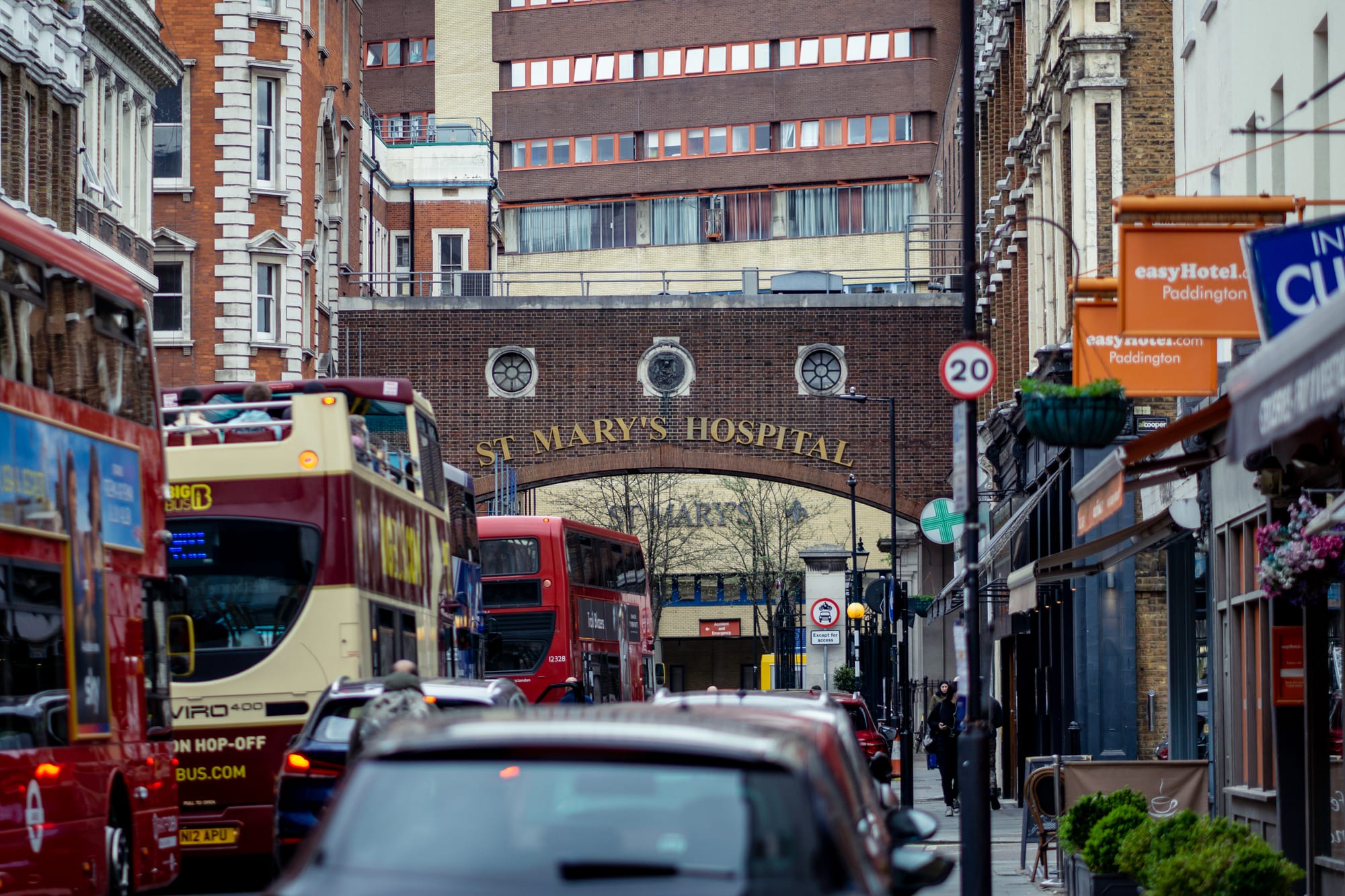
Furthermore, in-house security staff are concerned that the lack of experience and knowledge of the area Diligence Security staff have is “putting staff and students at risk”. Diligence has allegedly already been banned from manning the Burlington Daines Medical Research Facility after failing to respond to a fire alarm.
[Management] don't care about staff and student security.
Hence, despite increased dependence on Diligence Security, key responsibilities such as dealing with fire alarms are left to Imperial staff. A member of security at White City, where they work shifts in pairs, tells Felix “You’re basically on your own”.
In June 2021, a warden phoned the police after finding a large number of intruders in Xenia Hall shortly after midnight due to the door of the building apparently having been left open. Despite the noise being made, Security had marked in the log book ‘nothing to report’ at that time. Whilst the log book declared that they had been present at the time of this instance, there was no sight of them. When the log book was checked by the warden around 1am, it had also already been signed for a security patrol set to occur at 4am, again claiming ‘nothing to report’.
Whilst the Diligence employee responsible has been dismissed, in-house staff are concerned about the calibre of personnel working alongside them, as an officer claims “[management] don’t care about the quality of security officers they bring into this university. They don’t care about staff and student security."

An officer from White City explains: “[Diligence] standard is not the same as ours, but to our management it counts as the numbers. They only see the numbers. As long as they have the numbers, it seems they are happy.” Indeed, management recently justified the increasing use of Diligence personnel as ‘not a cost-saving [decision], but simply a way to ensure our staffing levels are well-resourced where they are most needed.’ A member of the Silwood Park team disputes this: “why would the department want unqualified Diligence ‘colleagues’ filling the roles which could be far more effectively manned by Imperial staff ?”
Imperial College’s Security numbers have dwindled. However, Security officers believe this to be the result of a deliberate attempt to “run our numbers down” by not hiring despite the natural decline in numbers due to retirement, etc. Although the College do advertise the Security officer role, they do so at a salary over £13,000 below an officer’s actual pay, which, including an allowance due to the anti-social and flexibles hours they work, is approximately £38,000. Furthermore, some of the Diligence staff who are more experienced and capable have reportedly been banned from applying to work full-time at Imperial.
There has been an increase in stress-related sickness and time off work, and the unpleasant prospect of being on shift with unequipped Diligence personnel has disinclined people on sick leave to come back to work. A retired officer tells me that within three months of being moved to White City, he was put on shift with a member of Diligence staff. Eventually, the stress of the forced relocation and work meant he took three months off with stress until he was “given an ultimatum: ‘come back to work or you’re sacked’.”
Stress-related sickness on the rise
Bullying culture and increased workload, due to lower staff numbers and untrained agency staff, has taken a toll on morale.
The increasing use of “unqualified” personnel has apparently upped the pressure on already thinly-stretched staff. The number of guards on a shift has been axed over the years: whilst in 2010 the South Kensington campus was manned by 13-14 Security guards, now there are only 5-6. Security understands that, as the College have sold off parts of the campuses over the years, redundancies are inevitable. However, they say “the method by which the unfortunate members of staff were selected was changed on numerous occasions and caused stress and anxiety to all concerned”. Allegedly, in 2014 when the number of staff on shift at Silwood Park was reduced, the College used the number of sick days employees had taken to determine who they would make redundant. Two employees took voluntary redundancy as they had both had extended sick leave shortly before. When numbers were further reduced in 2021, both people chosen to be made redundant had extended time off sick prior to this with stress related illnesses.
They don't think how to keep staff safe...They put as at risk.
The lack of transparency, as Diligence personnel are increasingly “creeping into the department”, has taken a toll on workers’ mental health. “We’ve been working under duress, strain, not wanting to come to work, depression, no motivation, ” an officer says. Another, who already suffers with anxiety, tells me how he has had to increase his medication recently partly due to the stress induced by his employers and workplace.
Security staff even feel that Diligence is just another tool in management’s arsenal to bully Security and force acceptance of conditions, under the threat of cutting overtime (as happened to a member of the Silwood Park team last week) or even replacement. “the (senior Security team) are narcissists, and they rule with fear,” a member of Security told Felix.
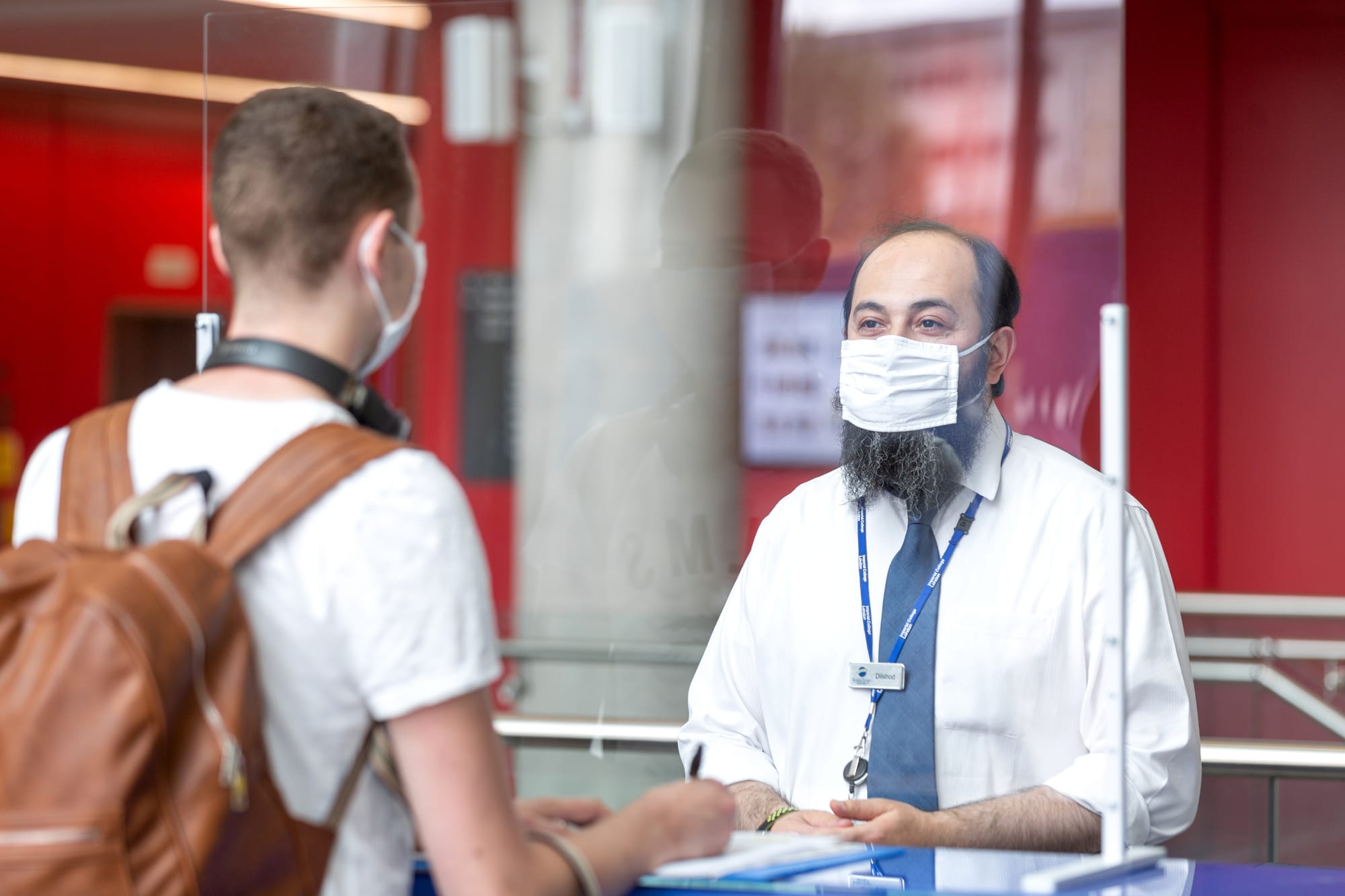
There is a clear disregard for the wellbeing of their Security staff, perhaps exemplified best throughout the pandemic, during which they “felt abandoned,” a Silwood Park officer says. Security asked for screens to be put up in their office to protect them, which management allegedly refused. When the UK government announced a change in policy such that people in close contact with people who had tested positive for the virus did not have to self-isolate if they had been double vaccinated, management illegally attempted to obtain staff ’s vaccination data without giving reason or outlining data use. “It was all very underhand”, a member of staff says. When this was queried, there was allegedly bullying (read the Felix investigation of bullying across the Security department here). The data was reportedly destroyed soon after.
Moreover, the use of Diligence Security personnel in Silwood Park increased from December 2020, and in preference to offering staff overtime. Officers protested to having to work in close proximity with individuals travelling from London during the peak of the pandemic and before anyone had been vaccinated, so the Head of Security confirmed on the 18th December that Diligence would not be used. Contrarily, Diligence personnel were used on the 19th, 20th and 21st. “(Management are) dismissive, condescending, and feeding lies,” says a Silwood Park officer.
At the time, Security guards had one of the highest death rates from Coronavirus. “They didn’t think how to keep us safe,” another says, “they put staff at risk”. Security staff received a one-off £300 payment to recognise their commitment despite the heightened risk throughout the pandemic.

